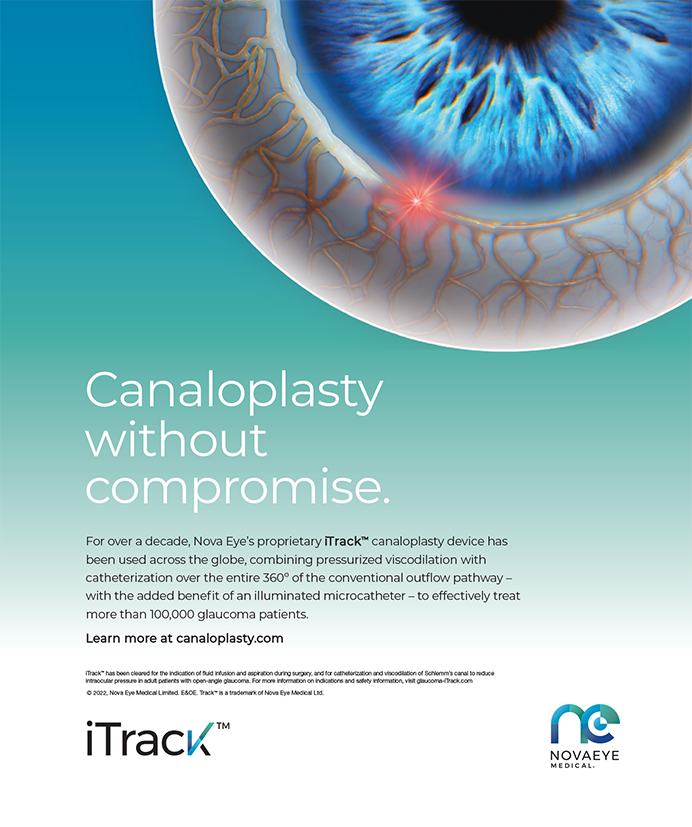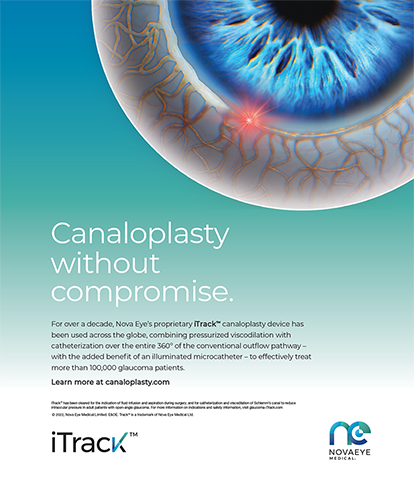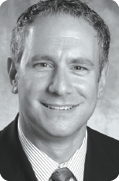
Kenneth A. Beckman, MD
The decision that had the biggest impact on me in 2015 was to participate in the Refocus Visability Scleral Implant study for the treatment of presbyopia. Although I have taken part in numerous other studies over the years, this research was unique in that it theorizes a completely different mechanism for accommodation than traditionally maintained. The treatment is thus somewhat controversial.
The treatment of presbyopia has long been considered a holy grail in ophthalmology. Finding a reliable surgical option may revolutionize the field. Thus far, the patients whom I have treated have responded quite well, and I have been more than impressed with the procedure. I feel privileged to be an investigator. I am hopeful that this research is the start of something that will benefit countless patients in the future.
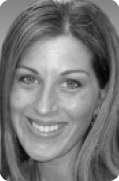
Nicole Fram, MD
Five years ago, I would routinely describe ophthalmology as the greatest profession on earth. Not a day went by that I did not feel privileged to perform surgeries that changed patients’ lives in such meaningful ways. Although I am still passionate about ophthalmology and caring for my patients, the growing burdens placed on physicians to comply with stringent regulations and oversight have admittedly stifled my enthusiasm for the overall practice of medicine. In light of this, the single best decision my partner, Samuel Masket , MD, and I made last year was to hire a chief operating officer (COO).
In speaking with my colleagues across the country, I have found many feel that a small group practice is not robust enough to require or afford a COO. I would argue that, in the current climate of medicine, a small group practice cannot afford to exist without a COO. The reasons why are best illustrated by the following acronyms: ACA (Patient Protection and Affordable Care Act), EHR (electronic health record), MU (meaningful use), PQRS (physician quality reporting system), ACOs (accountable care organizations), and ICD-10 (tenth revision of the International Classification of Diseases). The list goes on. Further, the changing and diverse high-deductible insurance plans require a system to ensure payment to the doctor in a timely fashion. This degree of business organization is not what I envisioned when I entered the field of medicine, and it was a cause of great angst and discontent until our COO came onboard.
Although our COO has only been with our practice for a short time, we are already benefiting. Not only have Dr. Masket and I returned our focus to caring for patients, but we cut overtime by 40% in 2 months. We can do what we do best (ie, medicine) and let our COO do what he does best (ie, business organization). With our COO now running the day-to-day aspects of the practice, I am free to actively oversee the business planning and to enjoy practicing medicine. Hiring a COO was the best decision I made both personally and professionally in 2015, and it has re-energized my passion for medicine.
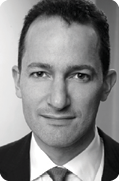
Tal Raviv, MD
There is much policy debate about the changing employee/employer structures in today’s technological world—from the “independent contractors” of Uber to the “gig economy” of Instacart, where freelance workers buy and deliver groceries to online purchasers.
I used the following peer-to-peer apps a few times last year for both professional and personal reasons. Fiverr (www.Fiverr.com) is a great digital marketplace for quickly and cheaply hiring an independent professional. With Fiverr, I had my practice’s logo designed in no time. Elance/Upwork () is also a great freelancer marketplace that I have tapped for website design, video projects, and even help with ICD-10.
For example, my practice’s ICD-9 superbill needed updating, but I only had a PDF version of it. After posting a request online with Elance, the PDF was converted to a beautiful and perfectly formatted Excel spreadsheet (Microsoft) within an hour for a reasonable price. My staff then manually updated the codes, while keeping the same look and muscle memory of our old superbill.
For personal use, I have used Handy (www.handy.com) and TaskRabbit (www.taskrabbit.com) for odd jobs. Instead of randomly choosing a plumber or electrician, I was able to see reviews and ratings, and by paying via the site, everything was transparent.
My all-time favorite is Kitchensurfing (www.kitchensurfing.com). With just a few clicks, my wife and I hired a chef to prepare a birthday dinner for a party of 10 at our home. We selected from the suggested three- and four-course menus on the site, evaluated the different chefs’ ratings and reviews, and then simply clicked “hire.” Forty-eight hours later, the chef (with an assistant) arrived with fresh ingredients and cooking supplies. He prepped, cooked, and served (and later cleaned up) a gourmet meal that delighted all of us. Pricewise, this service was equivalent to going out to a restaurant in New York City. The chef loved the freedom of being his own boss and was financially better off than working exclusively at a traditional restaurant. Kitchensurfer recently started promoting weeknight family meals over larger dinner parties.
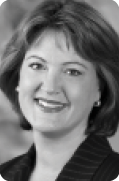
Denise Visco, MD
The biggest change I made at my practice over the past year was hiring a refractive surgical assistant. She is a certified ophthalmic technician and has several duties.
Preoperatively, she reads patients’ charts and confirms their refractive plans. She makes sure the proper IOL is selected and the astigmatic treatment is programmed.
Her intraoperative responsibilities include entering the treatment data into the laser before surgery and running the femtosecond laser with me in the OR. Because I am also involved in planning the surgeries, we check and balance each other. Furthermore, with the Lensar Laser System with Streamline (Lensar), we have an additional failsafe in automation. My refractive surgical assistant also makes sure the video equipment is running, and if I need anything during surgery, she will facilitate it.
She enters patients’ data into the ORA System (Alcon) pre- and postoperatively. She addresses all refractive follow-up issues, documents intraoperative complications, and obtains my signature. She handles any problems with equipment and orders needed interfaces. In addition, my refractive surgical assistant monitors our outcomes and charts data so that we can adjust our treatment nomogram. If I want a video of a surgery, she retrieves it. She is also the point person for clinical trials in which we participate.
Because our volume of refractive cataract surgery has been increasing, adding a refractive surgical assistant was a necessary progression for our practice, and the outcome could not be more wonderful! Her involvement has greatly reduced the stress of surgical planning and freed up a tremendous amount of my time. I would highly recommend that anyone performing over 150 refractive cataract surgeries per year consider this strategy. Essentially, we groomed an existing employee for the position.
Because my workload is more reasonable now, my personal life has improved. Only one question remains for me on this subject: Why did I wait so long?
Kenneth A. Beckman, MD
• director of corneal services at Comprehensive EyeCare of Central Ohio in Westerville, Ohio
• clinical assistant professor of ophthalmology at The Ohio State University in Columbus and president of CEDARS
• (614) 890-5692;kenbeckman22@aol.com;Twitter @KenBeckmanMD
Nicole R. Fram, MD
• private practice at Advanced Vision Care in Los Angeles
• clinical instructor of ophthalmology, Jules Stein Eye Institute, University of California, Los Angeles
• (310) 229-1220; nicfram@yahoo.com
Tal Raviv, MD
• founder and medical director, Eye Center of New York
• clinical associate professor of ophthalmology, New York Eye and Ear Infirmary of Mount Sinai
• (212) 889-3550;talraviv@eyecenterofny.com; Twitter @TalRavivMD
• financial interest: none acknowledged
Denise Visco, MD
• medical director and founder, Eyes of York, York, Pennsylvania
• dvisco@eyesofyork.com
• financial disclosure: consultant to and speaker for Lensar



